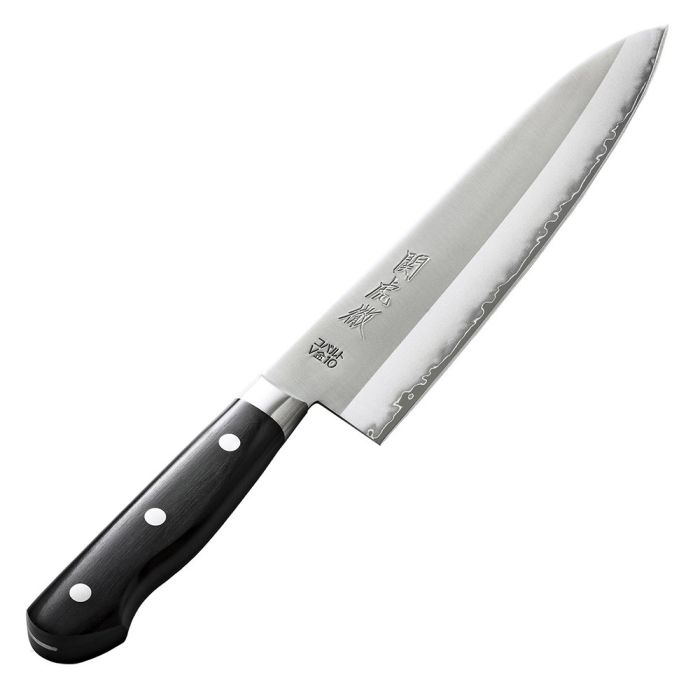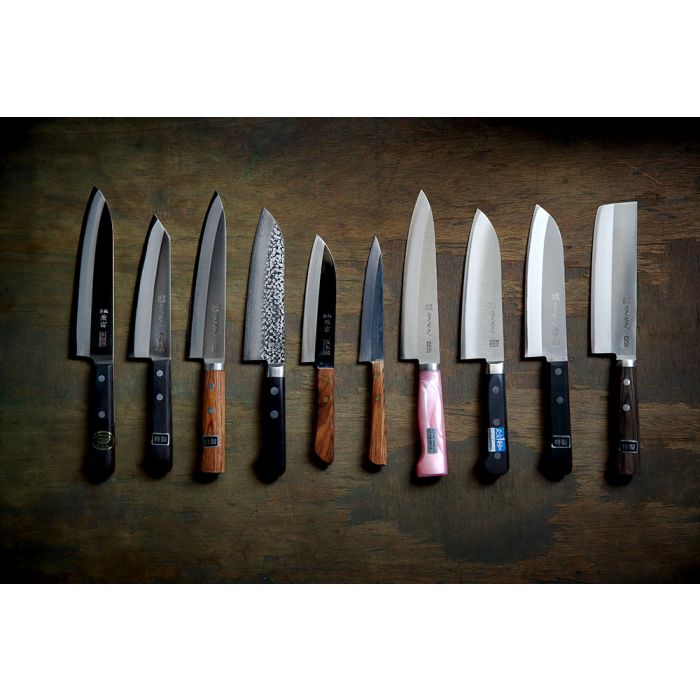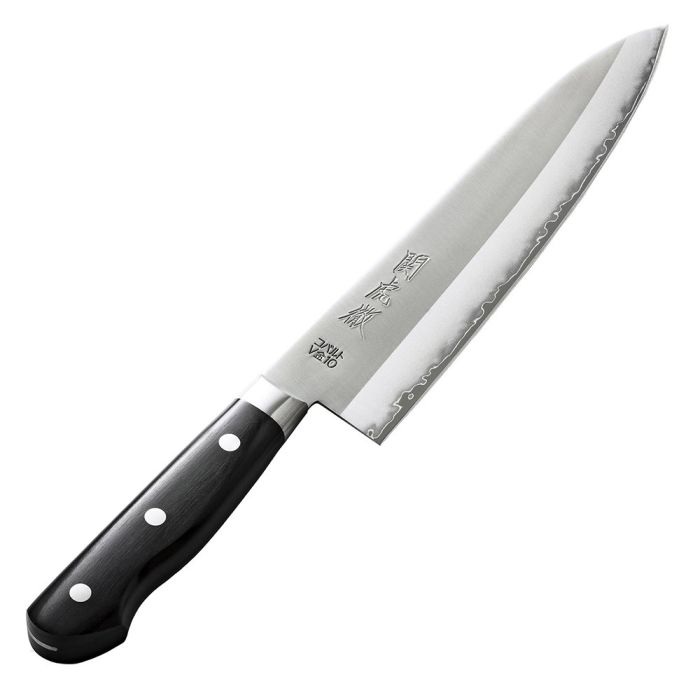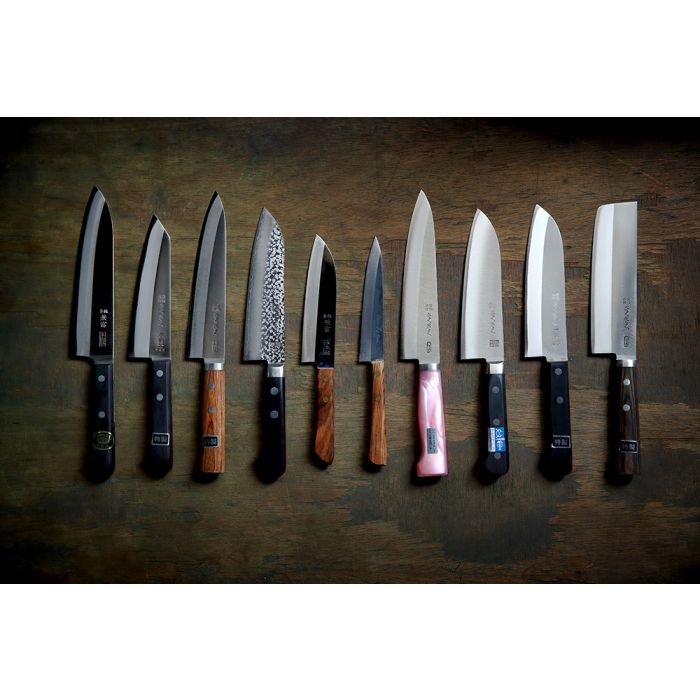All Seki Kotetsu individual knives are under £90 and are easily comparable with most knives significantly more expensive. The quality of craftsmanship, materials and performance is second to none at this price.
The material is VG10 which is hard and has a long-lasting sharpness. It features a beautiful blade pattern like a Japanese sword.
The chef's knife is the multipurpose workhorse of the kitchen. Perfect for mincing, cutting, chopping, slicing and prep work.
The Seki-City, is a small town famous worldwide for its production of fine knives. Its history began 800 years ago, when Seki prospered as the land of Japanese swords. The superior quality of Seki swords were quickly recognised throughout Japan and Seki became known as a sword making centre. The techniques and skills of traditional Japanese sword making has been passed down and are still alive in today’s modern cutlery industry.
Like many blacksmiths in rural areas, they specialised in making farming tools such as sickles and hoes, but they are nationally recognised for their incredible kitchen knives. The first generation of the Yasuda family was, like many, a swordsmith. After WWII, they decided to open a small workshop to produce knives and other steel tools, and in 1971 they expanded to a large scale production to meet a growing demand from all over Japan. They invested early in modern machinery that made large-scale production possible, which is one of the reasons why they have the ability to clad their own steel, rather than buying it pre-laminated. Because Saga is not a major production centre for knives and there are not many other craftsmen, they have built a facility that can handle the knife making process entirely from start to finish, whereas most knife-makers outsource their steel lamination and sharpening.
In 2017 when the ZDP-189 became first available, Yasuda quickly purchased the steel and tried it out. He was amazed by how insanely sharp the steel could get and how long it would keep its edge, so he started making kitchen knives using this super steel. Despite being hard steel to deal with, he feels a great sense of accomplishment when he forges with it compared to other steels.
In addition to laminating their own steel, they also sub-zero heat treat their knives to purify the steel, which allows the knife to perform and sharpen better. This is done after quenching, by treating the knives with liquid nitrogen to remove excess retained austenite which hasn’t been converted to martensite. This prevents the knife from bending with time by “stabilising” its structure. While scientific gibberish to most, this is a seriously big deal in the knife making world.



